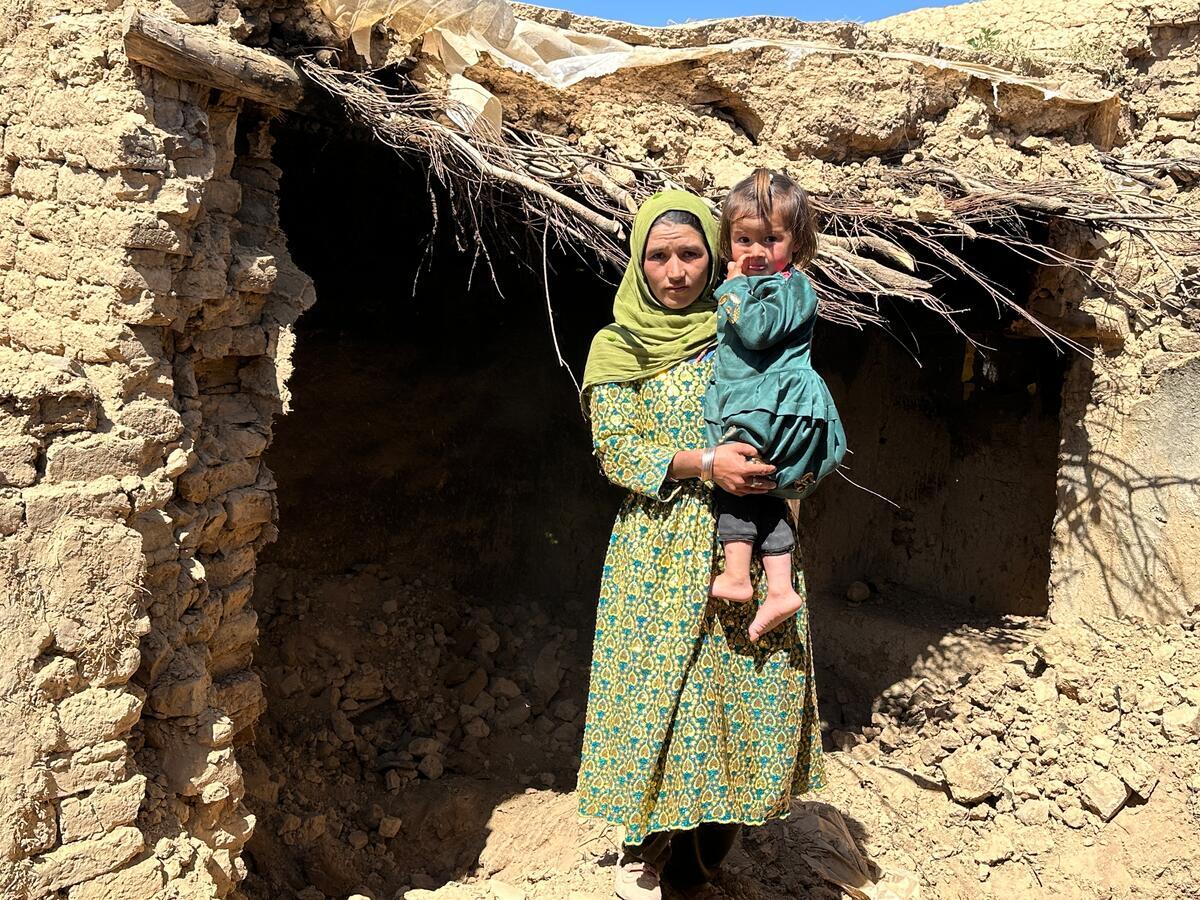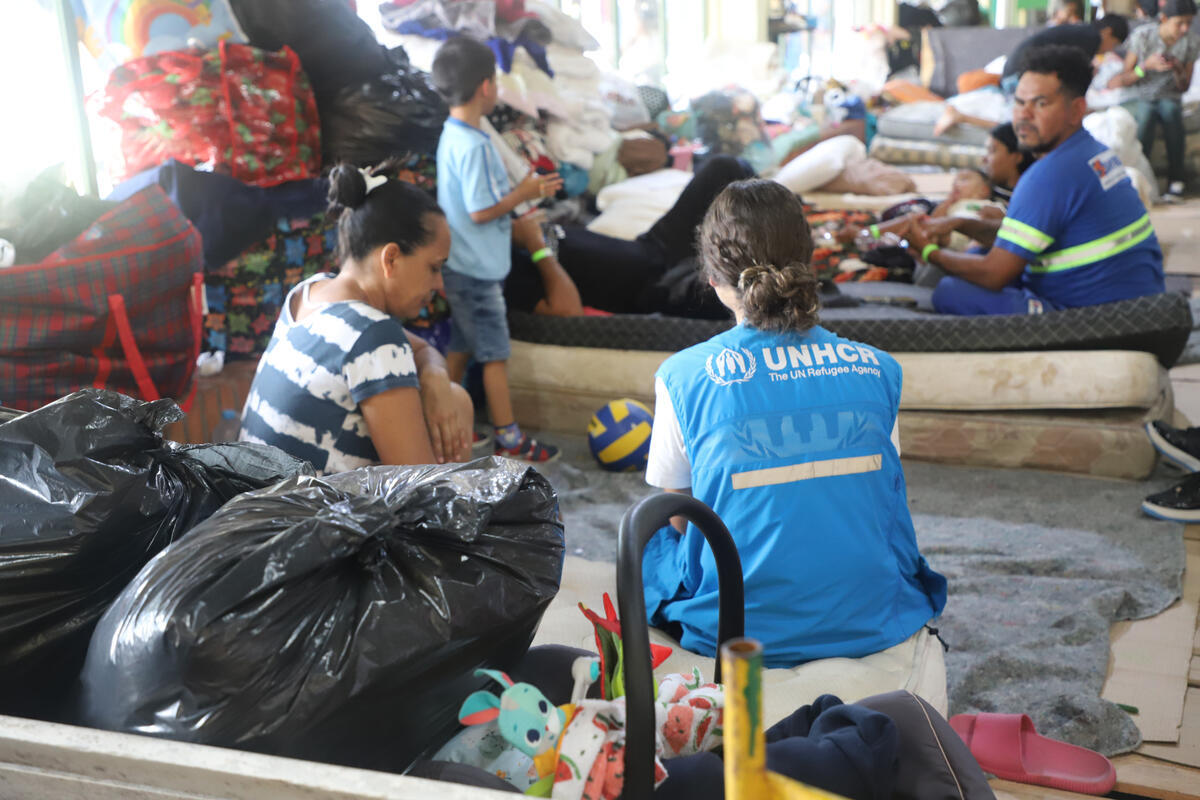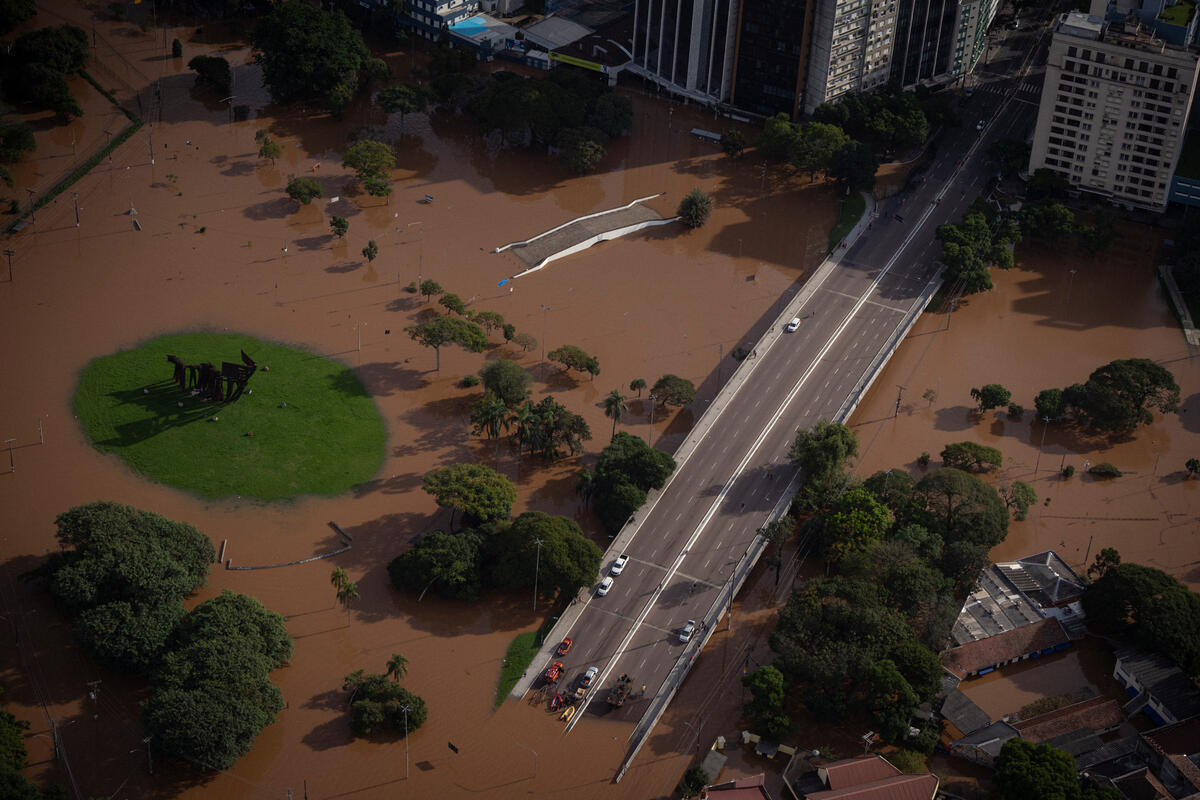Afghanistan Humanitarian Update No. 44
Afghanistan Humanitarian Update No. 44
At a Glance:
- Returns from Iran swell
- Herat's displaced get fresh aid
- High Commissioner Lubbers hails Afghanistan agreement
- Assistant High Commissioner visits region
Returns from Iran swell
The number of Afghans heading home from Iran since the Taliban's hold on Herat was broken on Nov. 12 has swelled past 24,000 people following the repatriation of thousands of Afghans in recent days.
The number of returnees from Iran since Nov. 12 breached 20,000 on Monday and has quickly risen, with additional movements of Afghans anxious to get home.
The vast majority of the more than 24,000 Afghans who have voluntarily repatriated from Iran since the fall of western Afghanistan's main city live in the region and immediately head home. But others want to return to homes areas as far eastwards at Badakhshan and Baghlan provinces in the extreme north-east of the war-ravaged country.
UNHCR remains concerned about reports that some Afghans have been deported to their homeland in recent weeks in movements that could be counterproductive to the humanitarian agencies' efforts to stabilize the situation in the war-torn land.
UNHCR is sending additional supplies into Herat from both Turkmenistan and Iran later this week. The increasing pace of returns from Iran could add to the shattered city's population of displaced persons, UNHCR fears, if not appropriately coordinated with the region's limited absorption capacity.
Herat's displaced get new aid
UNHCR's senior field coordinator in Herat on Tuesday undertook an assessment mission to Maslakh camp, west of Herat, together with staff of other relief agencies present in the city. Tuesday's inter-agency mission brought in tents, blankets, mattresses and plastic sheeting to respond to immediate needs and at least ensure that everyone has shelter.
Thousands of displaced people have arrived at the Maslakh camp in the past weeks in search for assistance. Up to 150,000 Afghans are reportedly in the largely makeshift site.
UNHCR is concerned about the situation in Maslakh, where there is an immediate need to improve water and sanitation services. UNHCR has been requested by other agencies to set up a registration system so that aid can be effectively distributed for these displaced Afghans, the first step in better assuring that the difficult situation can be contained and more quickly brought under control. The former Taliban authorities had long raised obstacles for agencies involved in providing assistance to the site.
UNHCR hopes to resume aid distribution around Herat in the coming days. It expects a convoy from Turkmenistan to depart for Herat on Thursday, with the agency's second convoy of aid supplies to leave Mashad in north-eastern Iran on Sunday.
Meanwhile, UNHCR is dispatching additional staff to Herat in order to boost relief activities in the western region. UNHCR also plans shortly to undertake a mission to another camp for displaced persons in Badghis Province, north-west of Herat.
UNHCR remains very concerned about reports from several Iranian Red Crescent-run camps for displaced persons just inside Afghanistan's frontier with Iran. Two children camped outside the Iranian Red Crescent's Mile 46 camp died on Monday night following illnesses. UNHCR remains deeply concerned about the continuing security problems and lack of assistance for some 2,400 displaced Afghans who are camped outside the Mile 46 and Makaki camps and who have not been allowed to be registered.
High Commissioner Lubbers hails Bonn agreement
UN High Commissioner for Refugees Ruud Lubbers on Wednesday hailed the agreement for a new interim government in Afghanistan that was signed Wednesday near Bonn as "an important and historic milestone" and pledged his agency's support in creating a lasting peace in which millions of Afghans can finally go home.
Addressing the Berlin meeting of the Afghan Support Group that opened Wednesday morning, Lubbers noted that the return of the world's largest population of refugees and displaced people will have a significant impact on the stabilization, rehabilitation and economic recovery of Afghanistan.
Even before Sept. 11, he said, there were more than 3.5 million Afghan refugees in Pakistan and Iran alone, as well as many more scattered across some 70 other countries worldwide. Hundreds of thousands of Afghans have been born in exile over the past two decades and have never seen their homeland.
Lubbers told the states involved in the Afghan Support Group and the heads of UN agencies in attendance that UNHCR will maintain a "two-pronged" approach focusing both on assistance inside Afghanistan and on the needs of the refugees in neighbouring states. A new UNHCR "Plan of Action" through mid-2002 cites four objectives:
- Voluntary return of refugees - Preparing for the resumption of regional activities aimed at facilitating the voluntary return of refugees to their homes. This will include the identification and promotion of safe environments for return. If appropriate, support will go returnees and local communities in areas of return.
- IDPs - Providing protection and assistance to internally displaced persons (IDPs) and other vulnerable groups inside Afghanistan in support of the UN inter-agency framework.
- Emergency preparedness - Maintaining an adequate regional emergency preparedness capacity.
- Support to refugees in countries of asylum - Continuing provision of protection and assistance to refugees in countries of asylum. This includes both refugees who were in these countries before Sept. 11, and new arrivals who number some 200,000 people, mainly in Pakistan. Under the regional plan, overall UNHCR funding requirements through June 2002 across the region amount to US$ 140 million.
Assistant High Commissioner visits region
UNHCR's Assistant High Commissioner, Mr. Kamel Morjane, arrived in Islamabad on Wednesday morning at the start of a week-long visit to the region. He will proceed to Kabul on Friday. One of Mr. Morjane's responsibilities as Assistant High Commissioner is to oversee UNHCR's assistance operations worldwide, and he is accompanied by senior advisers who have been directing UNHCR's response to the Afghan crisis.
While in Islamabad, Mr. Morjane is expected to meet with Minister for Kashmir Affairs, Northern Areas and States & Frontier Regions, Mr. Abbas Sarfraz Khan, as well as senior officials from the Foreign Affairs and Interior ministries.







